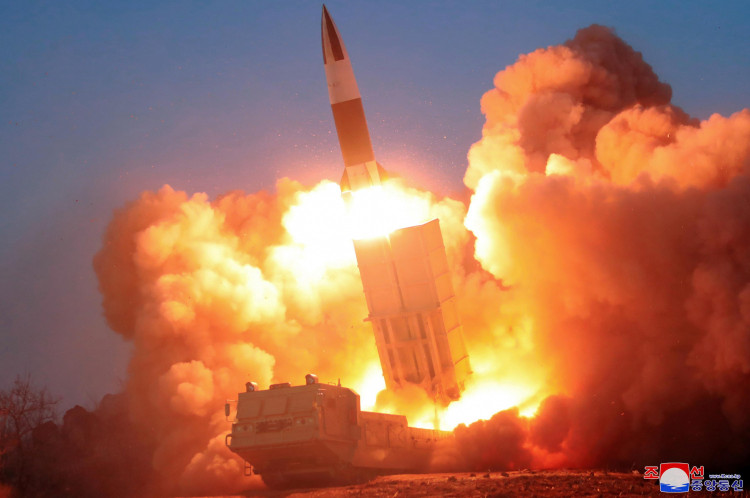North Korea appeared to test fire a ballistic missile Tuesday that is potentially more lethal than the "hypersonic missile" it released less than a week ago, South Korea's military claimed, as the North chases increasingly powerful military hardware.
South Korea stated that it detected the launch at 7:27 a.m. local time on Tuesday, while Japan's coast guard reported that North Korea fired a "ballistic missile-like device."
The early morning launch occurred as the United Nations Security Council convened in New York to examine the North's allegation that it tested a hypersonic missile last week, although Seoul has thrown doubt on that assertion.
South Korea's national security council voiced "deep regret" over the launch following an emergency meeting, according to a statement from the president's office.
The launches reaffirmed North Korean leader Kim Jong Un's New Year's resolution to boost the military with more advanced technology at a time when dialogue with South Korea and the U.S. have stalled.
According to preliminary calculations, Tuesday's missile traveled more than 700 kilometers to a maximum height of 60 kilometers with a high speed of up to 10 times the speed of sound, a statement from South Korea's Joint Chiefs of Staff disclosed.
On Monday, the U.S. mission to the United Nations released a joint statement condemning last week's missile launch, joined by France, Britain, Japan, the Irish Republic, and Albania.
Military analysts believe Pyongyang timed the latest missile to coincide with the United Nations summit.
North Korea was urged to abstain from "further destabilizing acts" and engage in genuine discussions aimed at "complete denuclearization," the group said.
Japanese government representative Hirokazu Matsuno said there were no initial reports of damage to Japanese aircraft or navy ships.
North Korea could be squeezing in launches ahead of the Beijing Olympics next month, according to Park Won-gon, a professor at Seoul's Ewha Womans University.
The reclusive North has earlier said it won't participate in the Beijing Winter Olympics following its boycott of the pandemic-affected Tokyo Games over COVID-19 fears, a move Pyongyang has attributed to "hostile forces."
North Korea has entered a worldwide competition to create hypersonic missiles, which are typically characterized as weapons capable of reaching speeds greater than five times the speed of sound and maneuvering on relatively low trajectories, making them extremely difficult to detect and stop.
North Korea is also experiencing food shortages as a result of a crippling blockade that has badly harmed its economy.




